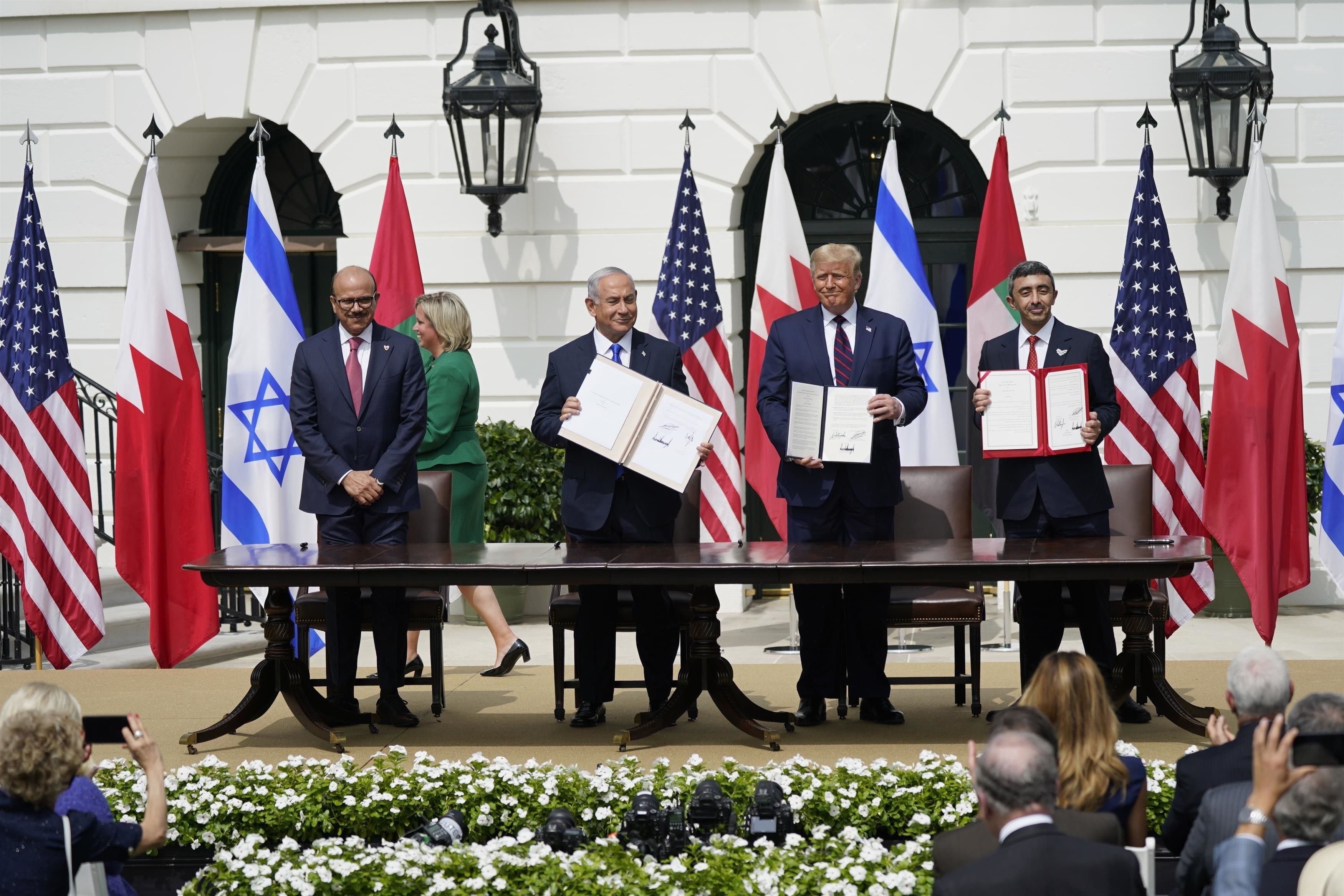UAE, Bahrain Establish Diplomatic Relations with Israel

What have the parties committed to?
Israel and the UAE have committed to establishing diplomatic relations, opening embassies, setting up direct flights, and cooperating in multiple areas such as investments, trade, tourism, healthcare, education, and energy. The agreement with Bahrain is a one-sided declaration on the establishment of diplomatic relations with Israel without further details. The official White House communication calls these agreements “peace deals” although the three states were not in a state of war. Neither the UAE nor Bahrain participated in the Arab-Israeli wars—they proclaimed independence only in 1971. The reason for the lack of diplomatic relations between Israel and the majority of Arab states until now has been the Israeli-Palestinian conflict. According to the government of the UAE, thanks to normalisation, Israel is not going to annex the occupied Palestinian territories. There is no such commitment in the text of the agreements, however.
What is the motivation of the UAE and Bahrain?
The UAE and Bahrain have become closer with Israel because all three perceive Iran as their primary enemy. In addition, they all fear social upheaval that could threaten the authoritarian regimes of the Arab states in the Gulf. The UAE expects that, thanks to the agreement, they will be able to acquire advanced defence systems (including F-35 stealth fighters) from the U.S. It also counts on cooperation with Israel in high-tech sectors—Israel can provide the know-how while the UAE has the capital. Both the UAE and Bahrain already use the Israeli software Pegasus for surveillance of internal opposition. Normalisation would not have happened if Saudi Arabia had not agreed to it—it wields major influence in the UAE and Bahrain. It can be assumed that despite a formal agreement between Israel and Saudi Arabia, the cooperation between the two states will also grow stronger.
What is in it for Israel?
Israeli PM Benjamin Netanyahu can portray the deal as the end of Israel’s isolation in the region. He needs successes as Israel’s pandemic situation worsens and criticism against him mounts. Like the UAE, Bahrain, Saudi Arabia and other Arab authoritarian regimes, Netanyahu may be concerned about the possibility of Joe Biden winning the upcoming presidential elections and the presumed change in American policies in the Middle East. If Biden wins, he will most likely pursue a policy modelled on Barack Obama’s: he will look for more cooperation with Iran and uphold the importance of human rights and democratic principles in relations with what Obama called “high-maintenance allies” in the Gulf. This might lead to tensions with Israel and several Arab States. The signatories of the agreements chose to participate in the celebratory ceremony at the White House to increase Trump’s chances for re-election.
What is the role of the United States?
The establishment of diplomatic relations between Israel and the two Arab states is portrayed as a diplomatic success of Trump and meant to increase his chances for victory in November’s election. Currently, the polls are not in his favour. The agreements are also intended to conceal the failure of Trump’s peace plan for Israel and Palestine, presented early this year. American diplomatic efforts promoting the interests of Israel are supported not so much by the Jewish minority in the U.S. (the majority of whom vote Democrat), but by Christian evangelicals, who make up a quarter of the electorate, 81% of whom voted for Trump in the 2016 elections. Evangelical Christians support Israel unconditionally because of their religious dogmas.
What do the agreements mean for the EU?
Establishment of diplomatic ties between states that have not had them before is naturally beneficial for international cooperation. However, there may be at least two adverse effects of these two agreements. In the current circumstances, normalisation between Israel and the Arab states of the Gulf signals a consolidation of the anti-Iranian coalition in the region. This might prompt Iran to pursue more aggressive regional policy, although such a scenario is dependent on the outcome of the U.S. elections. Undoubtedly these agreements lay bare the marginalisation of the Palestinians and their cause to establish a state since they cannot rely on the support of all Arab states. This may lead the Palestinians to expect intensified support from the EU, which remains a key donor to Palestinian institutions.


